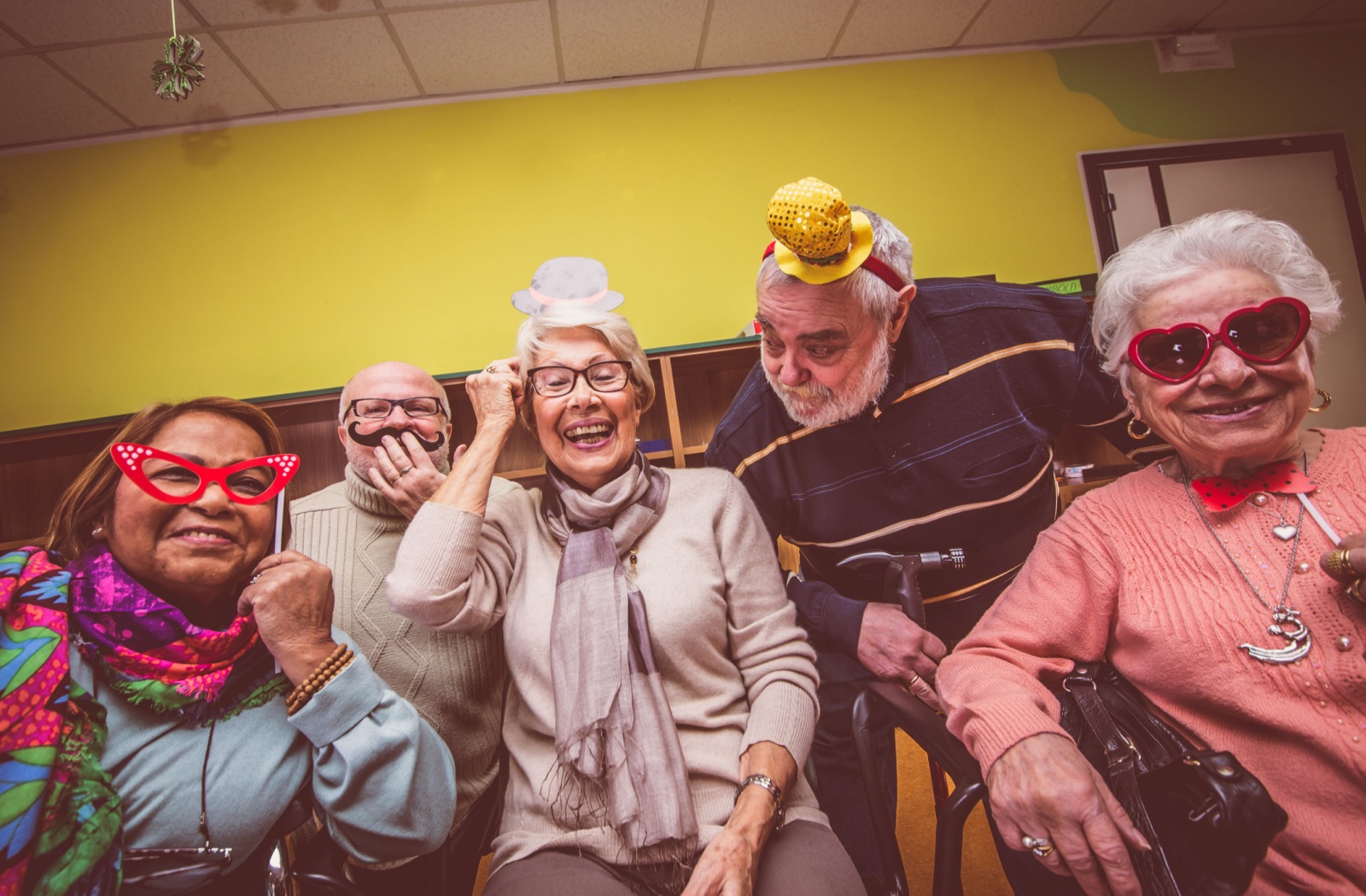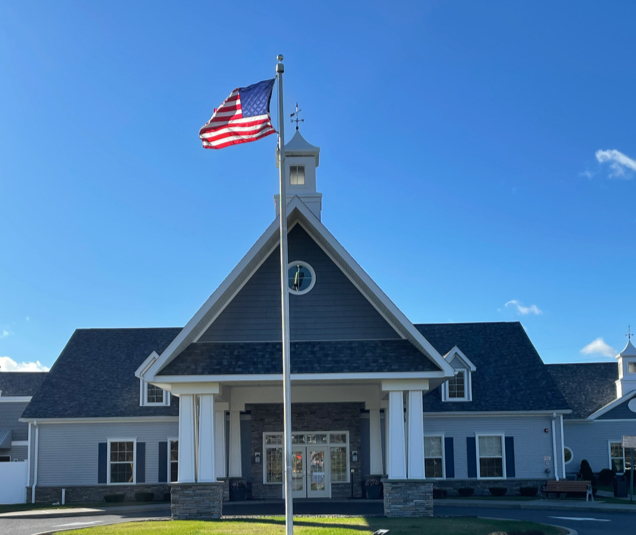The transition to caring for a loved one with dementia is filled with challenges, emotions, and questions. Families often wonder how to ensure that their loved ones continue to live with dignity, connection, and meaning as they face memory loss.
Providing purpose to someone with dementia isn’t just about engaging in activities. It’s about fostering moments of joy, connection, and contribution. The answer may lie in the thoughtful design of memory care communities, which create environments that keep seniors connected to purpose.
The Importance of Purpose for Seniors with Dementia
Purpose for someone with dementia isn’t tied to grand gestures or overarching goals—it’s in the small moments that feel meaningful to them. This could be as simple as folding towels, watering plants, enjoying music, or sharing laughter during a game. It’s about maintaining a sense of belonging, engagement, and self-worth.
For many seniors with dementia, daily life can feel confusing or isolating. Purpose gives their days structure and significance, reducing frustration and restlessness while enhancing emotional well-being. Purposeful living has health benefits, too, from improved cognitive functioning to improved emotional stability.
What Is Memory Care?
Memory care is a specialized form of senior living designed for individuals with Alzheimer’s disease or other forms of dementia. These communities focus on creating safe, supportive environments where seniors can thrive despite the challenges of memory loss.
A good memory care program addresses residents’ unique physical, psychological, and social needs. Staff members are specially trained in dementia care and offer support through evidence-based approaches like redirection, validation therapy, and sensory stimulation. Families find comfort in knowing their loved ones are in an environment tailored to their safety and emotional well-being.
How Does Memory Care Provide Purpose for Seniors?
A well-designed memory care community doesn’t just meet basic needs, it creates a life filled with purpose for its residents.
Meaningful Activities
Every activity in a memory care community is intentional. Instead of simply entertaining, these activities are designed around research-backed techniques that stimulate memory and encourage engagement.
Activities include music therapy, art classes, gardening, and crafting. Painting can evoke fond memories and express emotions creatively, while gardening reconnects seniors to nature and the satisfaction of nurturing life. These tasks give seniors something to enjoy and achieve, helping each day feel purposeful.
Social Interaction
Loneliness and isolation are common challenges for seniors with dementia, but memory care communities promote connection. Group activities like games, movie nights, or community celebrations provide opportunities to interact with peers, staff, and volunteers.
Even simple one-on-one conversations bring a spark to their day. These relationships help foster a sense of belonging and create bonds that translate to a greater understanding of community.
Feeling Valued & Contributing
Memory care communities encourage seniors to contribute in ways that make them feel valued. Completing responsibilities, like setting the table for dinner or participating in light cleaning tasks, supports the community and empowers residents.
Small achievements can renew seniors’ sense of pride and dignity, reminding them of their capabilities even as they cope with cognitive challenges.
Empowerment & Autonomy
For seniors with dementia, a loss of independence is a significant source of frustration. Memory care communities emphasize empowerment by providing choices, no matter how small.
Residents might choose what to wear, what meals to eat, or which activities to participate in. These daily decisions restore a sense of ownership over their lives, contributing to their emotional stability.
Focus on Strengths
Rather than dwelling on what a senior can no longer do, memory care focuses on their existing strengths. Residents are encouraged to participate in activities that align with their lifelong skills and passions.
For example, a former teacher might enjoy helping with literacy-focused tasks, while someone who loves music may enjoy listening to or playing familiar songs on the piano. This strengths-based approach keeps frustration low while boosting confidence and joy.
Confirmation & Acceptance
Memory care staff are uniquely trained to focus on emotional validation. This validation provides comfort and reassurance in moments of confusion, helping seniors feel understood.
Maintaining Identity
Daily routines and personalized care plans allow seniors to stay connected to their sense of self. Memory care communities celebrate each resident’s unique history, preferences, and personality, from honoring their favorite foods to creating memory boards with cherished family photos.
These practices create continuity by reminding seniors of who they are and their lives, even when memories fade.
How Early Memory Care Benefits Seniors with Dementia

While families often delay transitioning their loved ones into memory care, making this move sooner can have significant advantages. Early transitions allow seniors to benefit from structured routines, specialized activities, and meaningful social connections before confusion and isolation set in more deeply.
It also allows families to establish relationships with caregivers, ensuring the care plan aligns with their loved one’s needs. Transitioning earlier can ease the adjustment process as seniors acclimate to the environment with more cognitive ability and emotional resilience.
Finally, early memory care can prevent dangerous situations like wandering, medication errors, or injuries, providing families with peace of mind that their loved ones are safe, supported, and cared for.
Discover the Difference Memory Care Can Make
Memory care communities offer a dignified, compassionate approach to dementia care, focusing on providing seniors purpose, peace, and happiness.
At Peregrine Senior Living at Colonie, we implement The Peregrine Way® for our memory care residents, meeting their needs while honoring their individuality. Contact us today to see if our community would be a good fit for your loved one.













Learn and experience insider tips, considerations and real guidance that only experts can provide in-person!
Hope to see you there! 🙂 ... See MoreSee Less
0 CommentsComment on Facebook
Dining at our community is about more than what’s on the plate—it’s about connection, community, and the joy of gathering together.
Our talented culinary team crafts meals that are both delicious and nutritious, offering flavors that comfort and inspire.
From themed dinners to chef demonstrations, each meal becomes an opportunity to savor the moment and celebrate life’s simple pleasures. 🍴
peregrinecolonie.com/ ... See MoreSee Less
0 CommentsComment on Facebook
Today we celebrate the caregivers—those whose quiet strength and unwavering compassion bring comfort to so many.
We see the difference caregivers make every day: holding a hand, sharing a smile, or offering reassurance when it’s needed most. 💕
Your dedication reminds us that true care goes beyond tasks—it’s an act of love, patience, and humanity.
Thank you for all you do to make the world a more compassionate place.
peregrinecolonie.com/ ... See MoreSee Less
2 CommentsComment on Facebook
Peregrine Cooking Demo with Chef Patrick! 🧑🍳
In honor of the Olympics being hosted in Italy, we learned about the history of Italian cuisine, made our own dough from scratch, and crafted personalized calzones! 🇮🇹 They were delizioso! 😋 ... See MoreSee Less
1 CommentsComment on Facebook
Red roses?? I thought you said wet noses!!
We puckered up for some puppy lovin’ at our Kissing Booth! 💋🐾
Happy V-Day from our cutest valentines, Abby & Charlie! 🐶❤️ ... See MoreSee Less
1 CommentsComment on Facebook
Relationship advice loading 🔄 our ladies shared their words of wisdom while enjoying fresh, homemade chocolate covered strawberries and sugar cookies.
What do you think is the Secret to Love?? 💕 ... See MoreSee Less
3 CommentsComment on Facebook
Happy Valentine’s Day! ❤️
Love takes many forms—between partners, friends, families, and even across generations.
Today we celebrate the love that fills our community: the care shared between residents and team members, the laughter that brightens our halls, and the sense of belonging that reminds us we’re never alone.
May your day be filled with connection, warmth, and heart.
peregrinecolonie.com/ ... See MoreSee Less
0 CommentsComment on Facebook